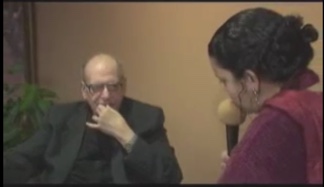Dr. Fathi Osman and Social Justice: A Tour through the Decades
by Dr. Ghada Osman
Ghada Osman holds a Ph.D. from Harvard University and is the daughter of Dr. Fathi Osman. In this article she describes Dr. Osman’s ideas on social justice. Dr. Osman is one of the most respected scholars of this century. He passed away in 2010.
At a time when world events have catapulted discussions on equity and social justice to the forefront of community and national discourses, it is crucial for Muslims to reexamine their approaches to and actions on these fundamentals. Among those who have advocated fiercely for them has been an author and scholar Mohammed Fathi Osman, whose death was precisely a decade ago (2010). While Osman’s 40 books and hundreds of articles/ papers in English and Arabic vary in their specifics, “the thrust of his thoughts centers on the idea of human rights,” arguing vehemently “against all forms of … abuse of power” (Abdelwahab El-Affendi, Rethinking Islam & Modernity, p.141). Throughout his life, Osman unequivocally championed human rights and human dignity as the cornerstones of the call to Islam.
Here we will take a brief tour of 4 junctures of his writing, each penned almost two decades apart, that highlight this advocacy.
Born in Egypt in 1928, as a teenager Osman joined the Society of Muslim Brothers (Jama‘at al-Ikhwan al-Muslimin, often referred to as the “Muslim Brotherhood”). Of particular significance to him was the group’s attention to social justice, which he reflected in sermons and lectures he gave as a high schooler and college student in the 1940s. During these college years, the theme expanded into writings for the Brothers’ periodicals, culminating in the publication of his first book at age 18. In it, Osman discussed distributive justice in the Islamic system, with focus on charity, inheritance rules, and examples from the time of the Prophet and early caliphs, followed by an evaluation of these principles in contemporary times.
Almost two decades after his first book, Osman’s ideology had shifted away from that of the Brothers, and towards an emphasis on the engagement of one gift from God, the human mind, with another gift from God, the Quran. After completing a trailblazing 1961 volume, Al-Fikr al-Islami wal-Tatawwur (Islamic Thought and Change), the following year, Osman authored Progressive Views from the Heritage of Islamic Thought (Aaraa’ Taqadumiyya min Turath al-Fikr al-Islami). Of particular emphasis in these progressive views was the engagement of the mind with texts from the Quran, Sunna, and juristic works on the theme of freedom, in particular as related to the application of social and distributive justice.
Examples were discussed regarding women’s rights, justice towards non-Muslims, and constitutional and international rights. The sentence concluding the volume was a poignant one: “How beautiful (is)… truly free openness of thinking” (p. 111).
Twenty years later, by the 1980s, Osman had left Egypt, lived in three countries on three continents, and just arrived in London to become editor in chief of a new magazine: Arabia: The Islamic World Review. He saw the publication as a chance for Muslims both to collectively assess the results of current and recent activism, and to dialog with the rest of the world on global issues such as human rights, resource inequity, and the environment. Rather than being a dogma-heavy publication, Arabia would provide the freedom to theorize, criticize, and analyze. Social justice was at the heart of its conceptualization in terms both of organization and content, with Osman penning a monthly column that critiqued the topic in a global context, with examples ranging from an assessment of the 1984 U.S. presidential elections as they affected the blue-collar worker, to the South African struggle against apartheid (September 1984, pp. 32-33; May 1985, pp. 9, 41).
Almost 20 years after that, at the dawn of the new millennium, Osman was now living in Los Angeles, where he had resided for over a decade, and had just completed a second edition of his magnum opus Concepts of the Quran. Described by The Los Angeles Times as “a milestone in Islamic scholarship,” (9/15/2010), the 995-page book discussed Quranic verses topic-by-topic, relying on exegeses from both medieval jurists and contemporary scholars. As an overarching theme, Osman pointed to the Quran’s invitation towards co-existence and cooperation among human beings, underscoring that “socio-economic justice development, including security, public health, education, work and market opportunities with fair relations, as well as different welfare plans, have to be offered to all human beings” (Concepts of the Quran, p. 812).
“Humankind,” Dr. Fathi Osman argued in 2001, “badly needs ‘qualitative’ change in its thinking and practices” (“Islam and Human Rights,” p. 65). In this era of global pandemic and mass uprising, the need for that qualitative change is all the more apparent. Perhaps the writings of Fathi Osman that have been “a beacon of commitment and enlightenment in times of difficulty and turmoil” (El-Affendi, p. 143) can serve as guidance during these times. As his daughter, I would say that they have definitely served as guidance for me.
Dr. Ghada Osman holds a Ph.D. from Harvard University and is author of A Journey in Islamic Thought: the Life of Fathi Osman.















2020
1,269 views
views
0
comments